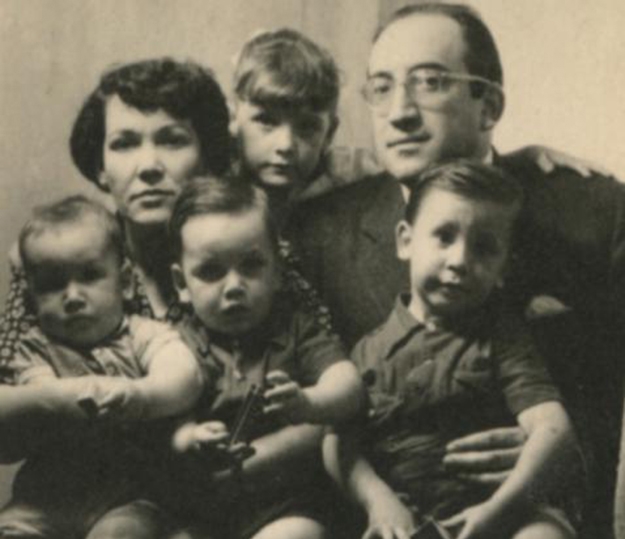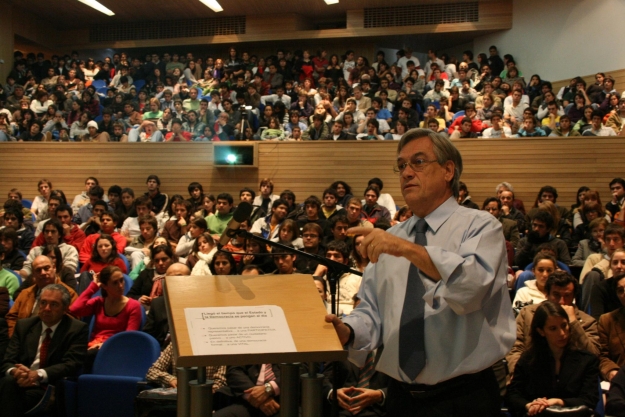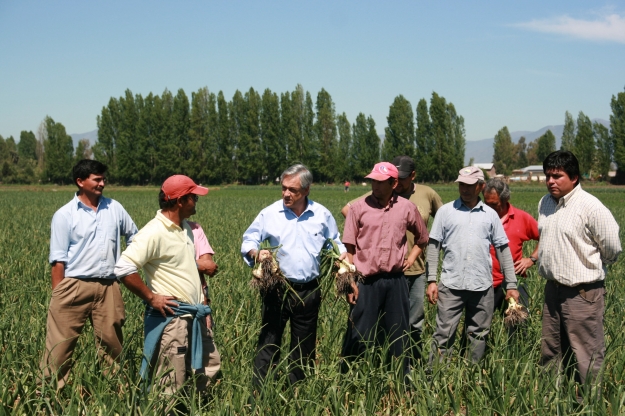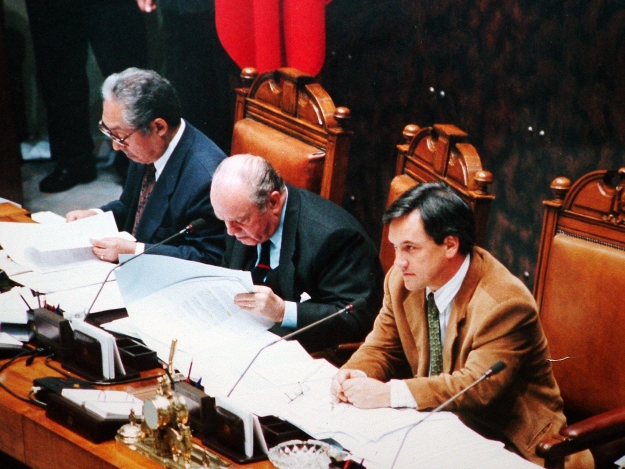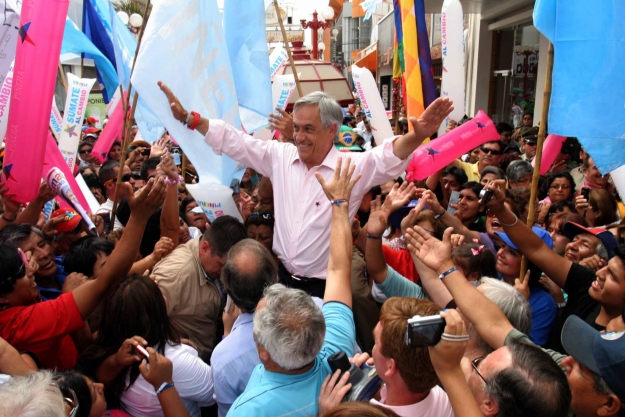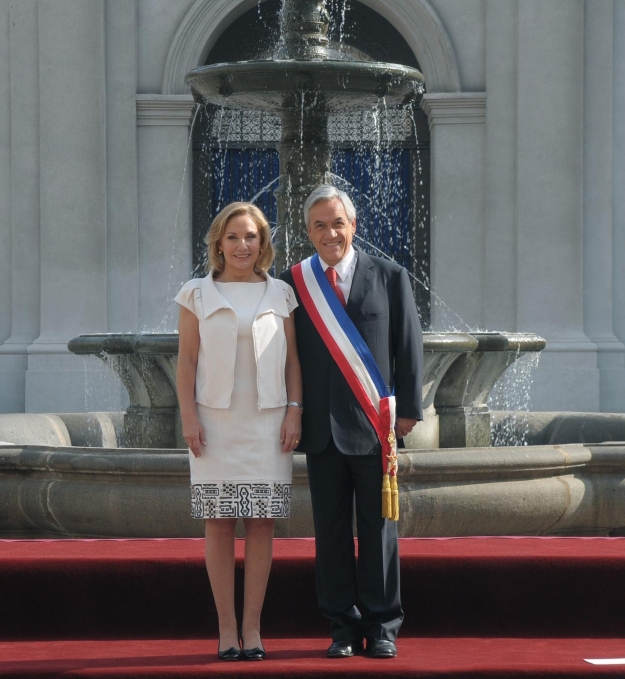Sebastián Piñera obtained 44% of the votes in the presidential elections held on December 13, 2009, moving on to a second round along with the candidate representing the Concertación (Concert of Parties for Democracy), Eduardo Frei Ruiz-Tagle. When the ballots were tallied on January 17, 2010, Sebastián Piñera obtained 51.6% of the votes, making him the new President elect.
On March 11, 2010, at the National Congress building, Sebastián Piñera was sworn in as the 47th President of the Republic of Chile.
The government of President Piñera allowed that Chile could continue at a steady pace its progress in the construction of a society of real opportunities, real assurances, and strong values; a society where every Chilean people could have the same opportunities to achieve their personal fulfillment, and to have the assurance to safely take the risks that implies entrepreneurship, and innovation. Also President Piñera contributed to construct a country where values such as respect for life, liberty, personal and family responsibility, diversity and environmental care are guaranteed.
During his government, the country recovered its capacity to grow (5.3% average), creating more that 1 million of new jobs in 4 years, with a special emphasis on developing policies to promote women’s employment, such as 6 months post natal and female employment subsidies. This environment allowed the creation of more than 576 thousand new female jobs during his period.
In health matters, he inaugurated 27 hospitals; increased the coverage of AUGE (Universal Health Access with Explicit Guarantees) diseases from 56 to 80; eliminated the 7% health contribution for retired people; developed the program ELIGE VIVIR SANO (Choose a Healthy Living) and approved a Medicine Bill that will widely benefit all Chilean population.
In educational matters, he took some decisive steps in the construction of a society of real opportunities: the school grant was increased, the role of the teacher was enhanced, including incentives for top school students to decide to become teachers, 60 public schools of excellency were created, the funding system for higher education was improved and scholarships for superior education were tripled.
In order to strengthen the fight against poverty, the government of President Piñera created the Social Development Ministry. Also, in order to create a new social collaborative policy towards promoting people, the government developed the Family Ethic Income that benefits more than 218 thousand of families. Finally the government managed to reduce in 148 thousand the people that were living in extreme poverty.
Last but not least important, in matters of citizens safety, the Home Office Ministry was reorganized and renamed as Ministry of Interior and Public Security, increasing the police force in more than 8 thousand policemen. Thanks to a great effort, which included different public policies, the government was able to reduce the victims rate from 33.6% to 24.8% (% of household that had been victimized), which implied that 1.4 million people stopped being victims of crime offenses.
www.sebastianpinera.cl

